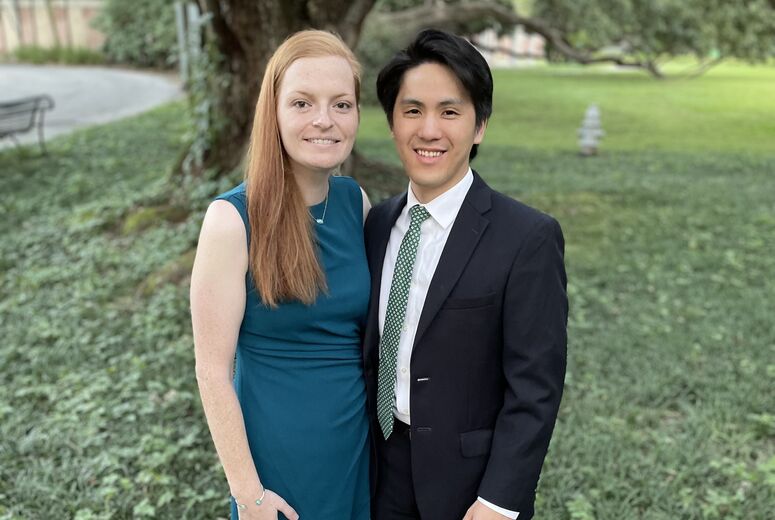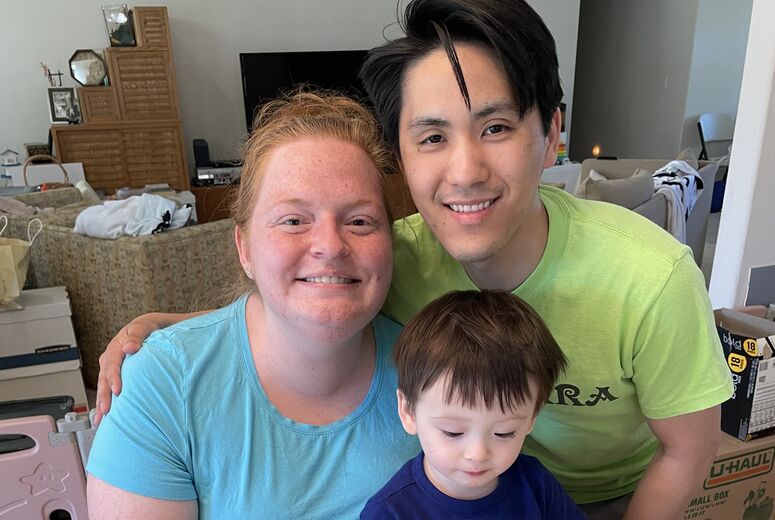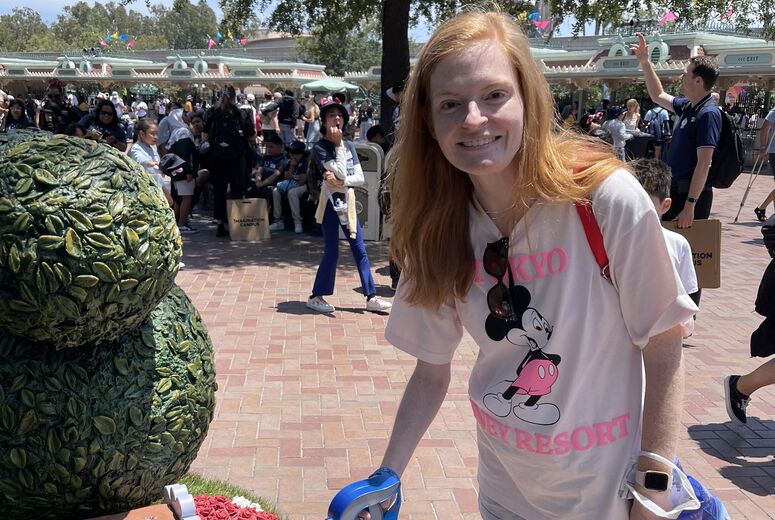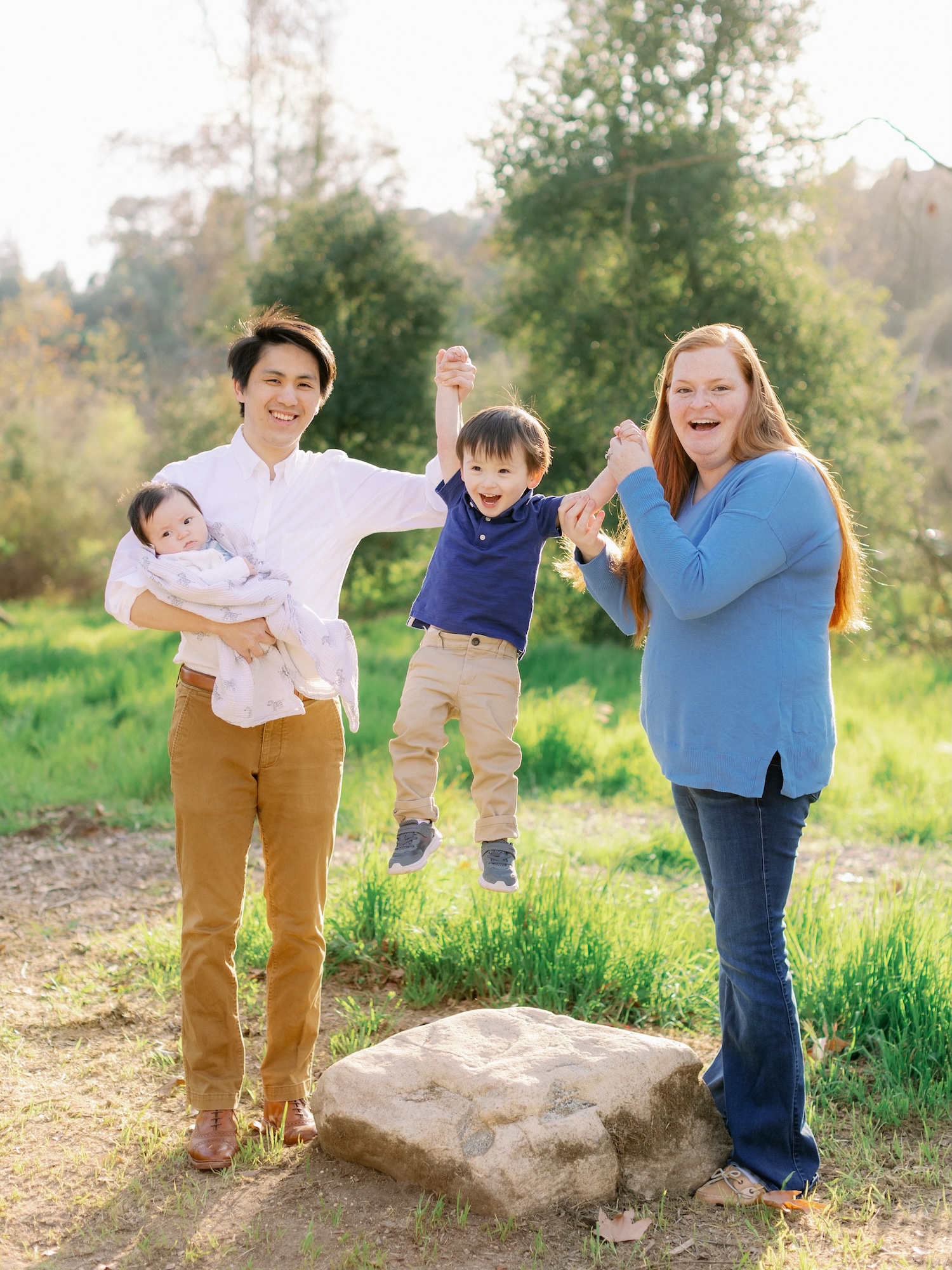
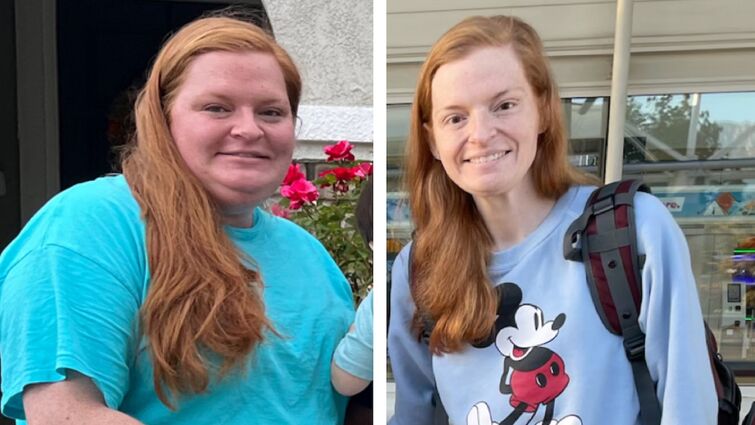
When Kelly Honda was ten years old, she asked her mom if she was overweight. Even at that young age, she could tell she was bigger than her friends. But in high school, she recognized the issue went beyond baby fat. Honda struggled with overeating.
By the time she was 32, Honda weighed nearly 300 pounds. Over the years, all her attempts at weight loss –– including crash diets and expensive GLP-1 drugs –– only brought her temporary weight loss. As a wife and mother of two, Honda wanted a permanent solution not only for her own health, but to set a positive example for her children.
When she discovered the Weight Loss Surgery Program at Loma Linda University Health, Honda finally felt hopeful that she had found a solution to her lifelong struggle with weight.

Kelly Honda with her husband, Matthew, and their children, Ben and Violet, prior to her weight loss surgery.
Over the next several months, she worked closely with dietitians, completed online nutrition courses, and gradually began changing her habits to prepare for surgery. By the time she underwent gastric bypass, currently the second most common weight loss surgery performed in the U.S., she had already lost 70 pounds.
Today, she is 160 pounds lighter than her heaviest weight.
Growing up, Honda was surrounded by unhealthy food and poor health habits on both sides of her family. Combined with a diagnosis of polycystic ovary syndrome (PCOS), fatty liver disease (despite never drinking), and rheumatoid arthritis, these factors made losing weight feel like an impossible task.
While Honda occasionally found success in GLP-1 drugs for weight loss, the expensive out-of-pocket price made it nearly impossible to afford month after month. And while she did lose weight, she knew it would have been a lifelong commitment of GLP-1 shots to keep the weight off.
Rather than continue to chase temporary solutions, bariatric surgery provided not just a pathway for weight loss, but a durable and long-term solution. The program also gave Honda access to vital support seminars to teach her what it meant to have a healthy lifestyle.
“I liked that instead of just sending me into surgery, Loma Linda made sure I was really prepared,” Honda said. “They taught me about nutrition, how to build new habits, and they helped me develop the mindset needed to succeed afterward.”
In addition to the education, Honda learned the importance of losing weight before undergoing the procedure.
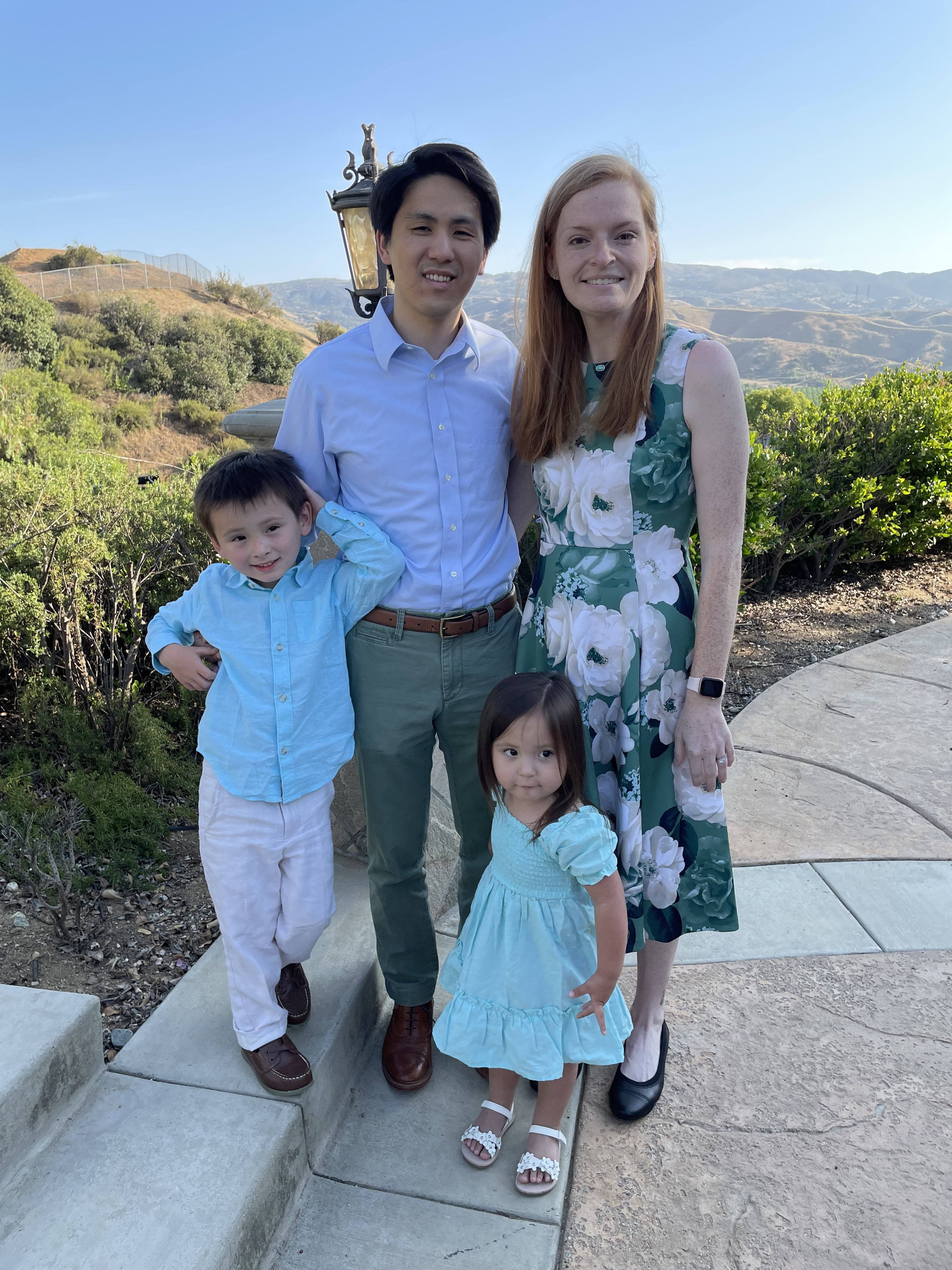
Kelly and her family after her weight loss surgery.
Keith Scharf, DO, FACS, FASMBS, Director of Bariatric Surgery at Loma Linda University Health and Honda’s operating surgeon, said that while losing weight is not a strict requirement prior to bariatric surgery, patients are encouraged to lose 5% body weight to help facilitate the surgery.
“Losing weight can help shrink the visceral fat and liver, allowing more room and visualization to perform the surgery,” Scharf explains. “It also helps patients set goals and realize the lifestyle changes that will be necessary for long-term success."
Within nine months of her first seminar, Honda successfully lost 5% of her total body weight and underwent successful gastric bypass surgery.
“This procedure is typically performed with a minimally invasive approach, which includes several small incisions,” Scharf said. “A small stomach, typically 15-30 ml is created from the old stomach, and then a limb of small intestine, the jejunum, is brought up to the new small stomach. After, when patients eat, food bypasses the old stomach and proximal intestine.”
The primary mechanism for weight loss after a gastric bypass is due to metabolic changes. GLP-1 and peptide YY hormones in the gut and brain increase after gastric bypass surgery, which helps to decrease appetite and improve insulin sensitivity and production. There is also an increase in total calories burned after weight loss surgery.
Although the idea of surgery was initially daunting, Honda’s recovery was smoother than she expected. She was able to go home within a day and return to work within two weeks.
With her dramatic physical transformation, Honda credits her months of education and preparation prior to surgery, and the gastric bypass operation, with restoring her health in a way she’d never experienced.
“I can breathe better. I feel strong. I don’t regret anything about the process,” Honda says.
The chronic joint pain caused by her arthritis and her fatty liver disease has since been completely resolved. And, more importantly, she no longer feels out of breath walking or playing with her kids.
Bariatric surgery also gave her something the crash diets or GLP-1 medicines couldn’t –– a true chance at a broken cycle of generational weight-related health issues.
“Weight loss with bariatric surgery can lead to 23%-35% total body weight loss,” Scharf said. "However, outside of those trials, in “real world” studies, the weight loss from GLP-1’s showed about 5% total body weight loss. It seems that real-world weight loss with GLP-1’s may not match what we were seeing in the clinical trials. Other studies have shown that if you stop a GLP-1 medication, patients will regain their weight, so for success, patients will likely need to be on a GLP-1 medication long-term.”
Honda's experience with bariatric surgery means she can now model healthy food behaviors, focusing on protein-rich meals, minimizing sugar, and including fruits and vegetables in daily meals. She is even an example for her family members to pursue their own weight loss journey.
For those struggling with their weight, Honda encourages them to talk to someone at a bariatric program and explore their options.
“I feel like I’ve got my life back,” she said. “And I want others to know they can too.”
Anyone suffering from obesity or other medical conditions related to obesity, such as type II diabetes, sleep apnea, high blood pressure, or high cholesterol, might be a candidate for gastric bypass or other bariatric surgeries. For more information, call us at 909-651-7091 or visit our website here.

